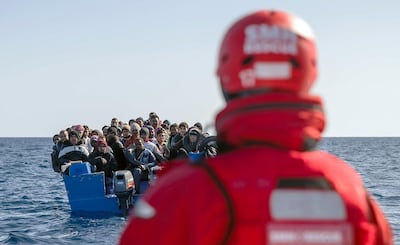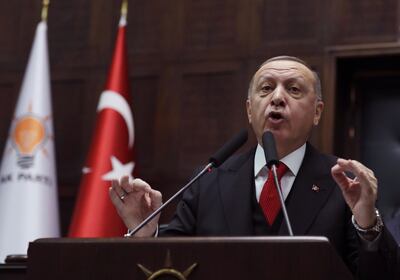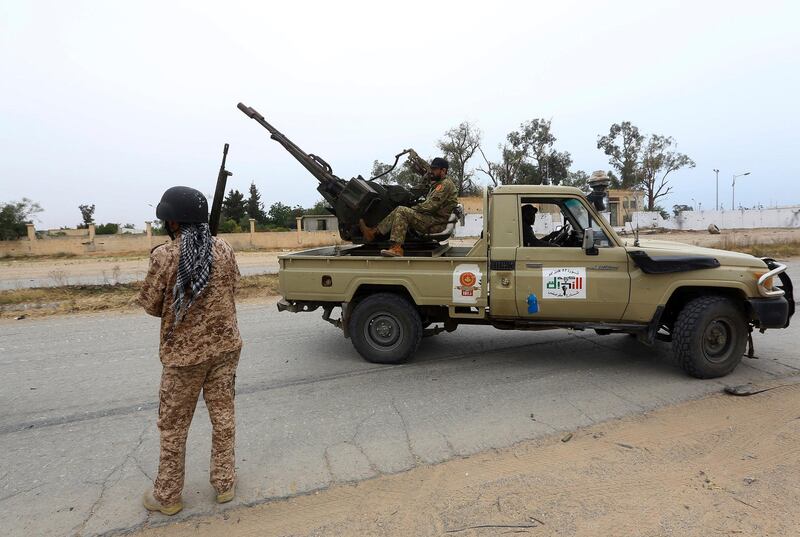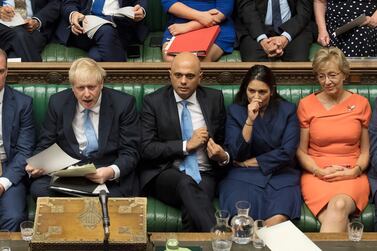The task of engineering a new start for Libya has been an important discussion point this weekend at the Munich Security Conference, the premier European forum for international security.
Delegates agree that Libya is at an “incredibly sensitive” moment. Niels Annen, a German foreign minister who has led the Berlin mediation process on Libya, has been at pains to point out the Libyan conflict’s African context.
Europeans view the conflict most acutely in terms of the tens of thousands of African migrants that use Libya as a platform for entry across the Mediterranean. The conflict has provided these migrants an open gateway to prosperity in Europe despite the risk to life, both from crossing Libya itself and when people-smugglers put them on flimsy boats.
Global diplomats have been engaged in a high-stakes effort to negotiate and sustain a ceasefire.
Only when this takes hold can there be the outlines of a new settlement in Libya. Once achieved, a Libyan peace might provide wider effects across the Sahara, into West Africa and as far away as Sudan and Eritrea. However, we are a long way from that point.
Last week, the UN Security Council marked a rare moment of progress when it passed a resolution in support of a lasting ceasefire and the Berlin process. The officials at the session expressed their hopes for meetings of a joint military commission composed of uniformed Libyan officers, who are convening daily in Geneva.

Even with a breakthrough at that level, a ceasefire would need further support from willing partners. Indeed, following the passage of the UN resolution, offers from outside to set up a monitoring mission are on the table.
Since the demise of Muammar Gaddafi, Libya’s former dictator, there have been multiple diplomatic initiatives dealing with the country.
Most were built on foundations that took little account of conditions on the ground, and failed accordingly. At the end of four decades of one-man rule, there was no state infrastructure for Libyans to inherit. To say the official structures had been hollowed out is an understatement.
The consequences endure to this day. The Government of National Accord has a writ that does not stretch beyond the gates of a Tripoli naval base.
It has taken up too much of the focus of the UN envoy’s efforts, obscuring the essential truth that the militias stretching from Misrata to the heart of the capital have not had their grip removed since the aftermath of Gaddafi’s flight from power.
The vacuum left by the fall of the regime has resulted in a concerted ideological campaign to capture Libya.
Therein lies the country’s real battle. Factions steeped in programmatic Islamist politics have been and are determined to control Libya. These groups, aligned to the Muslim Brotherhood, have tried to own the revolution that toppled Gaddafi.
Backing from Turkey has sustained this campaign. There are clear parallels between the policy pursued by Turkish President Recep Tayyip Erdogan and the Ottoman approach to North Africa over hundreds of years.

Countries such as France have seen the agenda to control Libya and are deeply concerned about the implications of this power putsch. Paris convened a meeting of sub-Saharan countries earlier this month to address the security risks involved.
Europe does not want an outflow of migrants from Libya to be compounded by an outflow of radical ideologies.
Moreover, oil sets Libya apart from other African nations in this calculus, too. Gaining control of the enormous revenues generated by Libya’s natural resources would mark a new departure for the Islamists. The consequences of the 1979 revolution in Tehran for Iranian oil are clear enough for Europe to deter Libya from taking a similar path.
As it is, Europeans have recently suffered a series of terror attacks staged by young men who have spent time in Libya. One accused, Hashem Abedi, is standing trial in British courts for multiple murders. He tried to flee justice by going to Tripoli.
Therefore, a well-resourced Islamist-run state in Libya is a risk that many in the European security establishment are not prepared to countenance. But on the sidelines of the Munich gathering, there was no uniformity on the question of how to avoid this.
Italy continues to seek its own agenda gains, while British policies have not really shed their Arab uprising alignments. Germany’s diplomats, on the other hand, have done more than most to provide a much-needed boost for what had been a flagging role for diplomacy.
Nonetheless, holding the line against Libya succumbing to the control of ideologues remains an important strategic goal for everyone.
The prize – a unified, stable Libyan state – will not happen merely by devolving control to whoever happens to occupy Tripoli. Fighting in Libya is an open sore. At the Munich Security Conference, there are signs that it may yet heal.
Damien McElroy is the London bureau chief of The National






